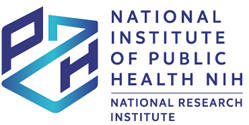ABSTRACT
On the basis of available publications and obligatory legal regulations regarding the organisation of collective feeding patterns in Social Service Health Centres a questionnaire study was established to examine the way milk kitchen function in Poland. The study covered 533 milk kitchen centres (in hospitals, orphanages and creches) from February to December 1997. The afore-mentioned study analysed the general characteristics of the milk kitchen centre, its type of work, supervisory methods and the personnel’s hygiene. From the results of this research it can be concluded that the organisational structure of the milk centres was appropriate appliances and equipment in the majority centres were adequate but basis utensils were insufficient. It is obvious that dietetic feeding methods for this particular group of children are insufficiently applied. Only 22,2% of the centres apply the recommended proposals i.e. without boiling, without pasteurisation, ready for consumption when preparing, infant formulae, followup formulae and other mixed products. Work hygiene and health quality of production in the milk kitchen centres is subject to systematic controls by competent individuals from the State Sanitary Inspection services. In the years 1995-96, 72 samples of infant food that mainly came from hospital milk kitchen centres were taken due to the poor microbiological quality of the food. The considerable changes that have taken place over the last few years as far as infant feeding is concerned, for example, the promotion of breast-feeding, taking advantage of prepared dietetic products for infants (infant formulae, follow-up formulae, vegetable products, fruits, vegetablemeat products, cereal products) require changes at the organisational level of infant collective feeding which was confirmed by the afore-mentioned study.
You can change cookies settings in your browser. Restricted use of cookies in the browser configuration may affect some functionalities of the website.



